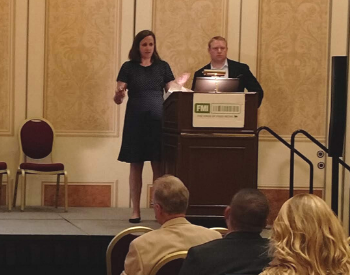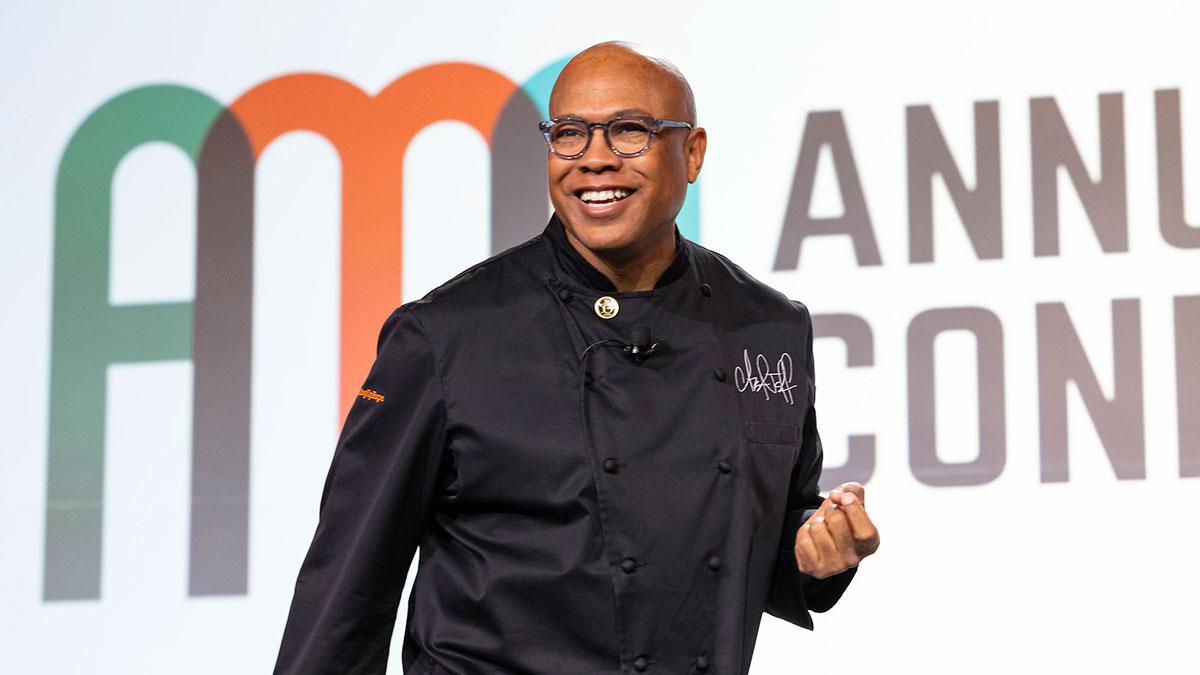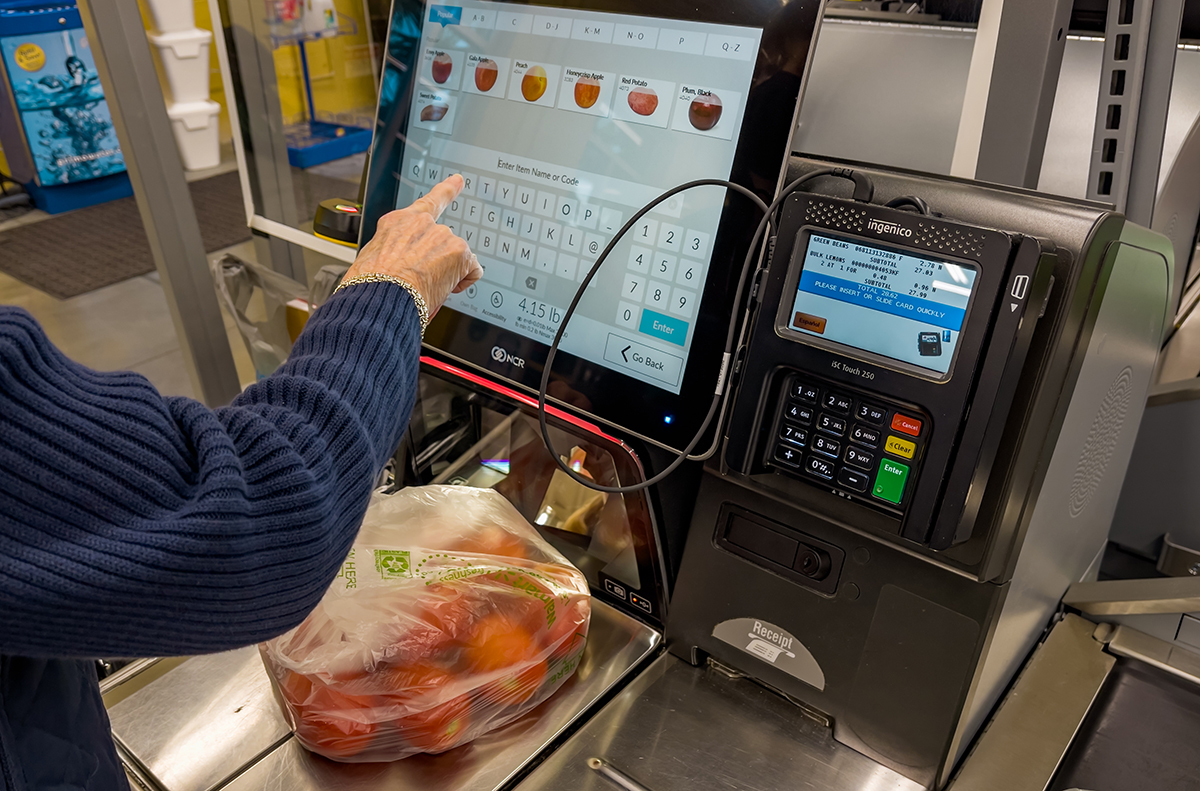By: Doug Baker, Vice President, Industry Relations - Private Brands, Technology, FMI

It’s not often you get to be a fly on the wall of a conversation between a food retailer and supplier, but that is what attendees experienced during a recent Groceryshop 2019 presentation hosted by FMI with presentations from Erin Dress, Walmart omnichannel team lead, Unilever, and Austin Leonard, industry manager, CPG food and beverages, Walmart Media Group. The discussion centered around consumer engagement—what retailers and brands are doing to address changing customer behavior and expectations.
The secret to consumer engagement lies in partnerships
Throughout the discussion it was clear that as Unilever and Walmart approach their mutual business objectives, the two team members have become strong partners. This showed me retailers and brands need to adapt together to roll out new models to deliver on rising customer expectations. Omnichannel retailer models require retailers and brands alike to reinvent how they deploy people, technology, marketing and media.
The retailer’s roll in an omnichannel partnership
Austin Leonard leads the strategic direction of the pod focused on key Walmart suppliers in the CPG food and beverages vertical across the Walmart ecosystem. His team helps leverage Walmart’s unparalleled omni shopper data to reach and influence customers at scale – delivering highly relevant content and accountable advertising that enhance the Walmart shopping experience.
Supplier talent needed for an omnichannel partnership
Marc Hubbard, U.S. country manager for Advantage Report USA served as a discussion moderator and asked Erin Dress, “In a fast-changing and digital world of omnichannel that requires suppliers like Unilever to rethink how you approach the opportunity, what do you do?”
She said, “It’s best to start with the people. Most humans don’t like change and uncertainty—on the Unilever eComm team, we try to hire employees who thrive in ambiguity. We need talent who are able to navigate unchartered business models, build flexible processes, and think outside the box.”
She shared that beyond the customer team, her group also requires investment in a robust cross-functional team that starts with supply chain. Unilever then added a digital shopper marketer specialist, who could help build robust strategies for campaign-based, pulsed growth strategies for search and display. Most recently they added Category Management, also known as Category Advisory.
Partnering on the digital shelf
Evolving eComm requires up-leveling assets and paying as much attention to the digital shelf as the physical shelf. This of course involves imaging as well as video, ratings and reviews syndication, agency support, eComm strategists, and the ever-important question of budget.
Erin Dress also shared that her personal passion, given her brand management background, is assortment. She shared that “Fit for eComm” means sustainable for both the retailer and the supplier, while at the same time delivering what the shopper wants. Unilever uses eComm to identify white spaces and test how to enter new sub-categories, formats, and price points that might not immediately earn a spot on the physical shelf of a brick and mortar retailer. They evaluate emerging trends and test and learn before scaling what works.
Additional Resources
Erin and Austin are remarkable business partners and I am glad that they shared their journey with the FMI and Groceryshop audience to reflect the learnings we are all experiencing as we follow the roadmap to a successful digital strategy – a strategy that is built on collaboration of people, processes, and technology.
- Videos of Groceryshop general session keynotes that have been approved for sharing—more may be added as we receive permission (we do not share track session videos). Must See videos from our “Get to Know the Speaker Series” filmed onsite here.
- Join us at the FMI Midwinter Executive Conference, for the dynamic discussions, networking and private trading partner meetings in the FMItech program.


 Industry Topics address your specific area of expertise with resources, reports, events and more.
Industry Topics address your specific area of expertise with resources, reports, events and more.
 Our Research covers consumer behavior and retail operation benchmarks so you can make informed business decisions.
Our Research covers consumer behavior and retail operation benchmarks so you can make informed business decisions.
 Events and Education including online and in-person help you advance your food retail career.
Events and Education including online and in-person help you advance your food retail career.
 Food Safety training, resources and guidance that help you create a company food safety culture.
Food Safety training, resources and guidance that help you create a company food safety culture.
 Government Affairs work — federal and state — on the latest food industry policy, regulatory and legislative issues.
Government Affairs work — federal and state — on the latest food industry policy, regulatory and legislative issues.
 Get Involved. From industry awards to newsletters and committees, these resources help you take advantage of your membership.
Get Involved. From industry awards to newsletters and committees, these resources help you take advantage of your membership.
 Best practices, guidance documents, infographics, signage and more for the food industry on the COVID-19 pandemic.
Best practices, guidance documents, infographics, signage and more for the food industry on the COVID-19 pandemic.
